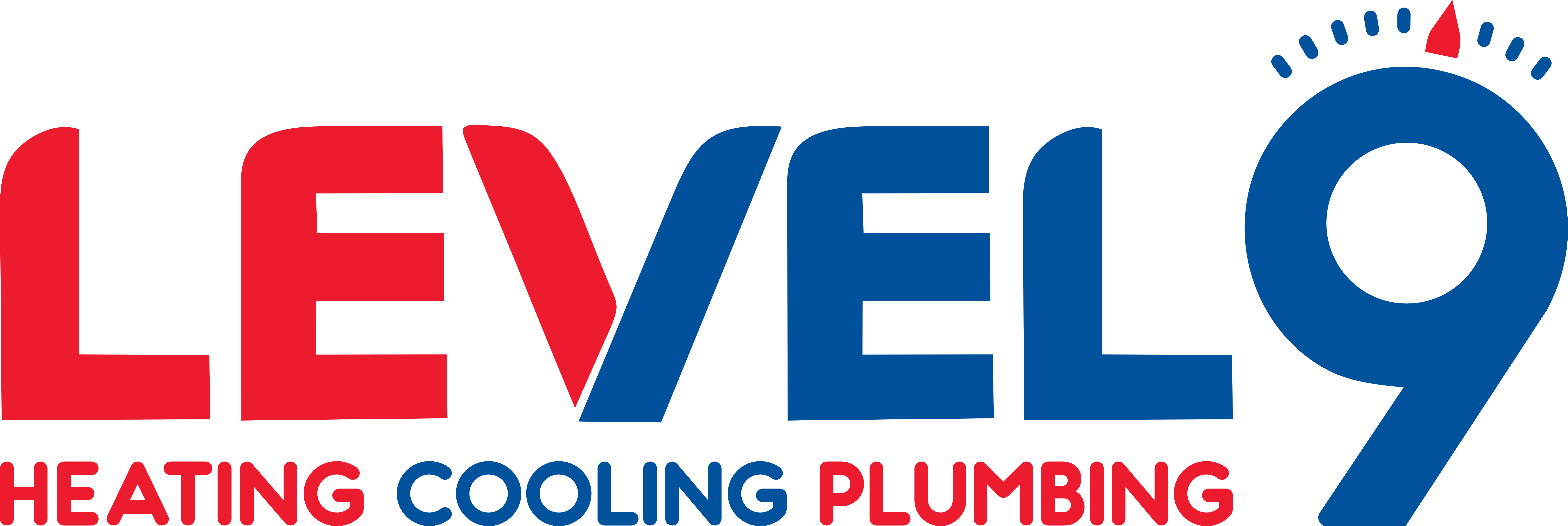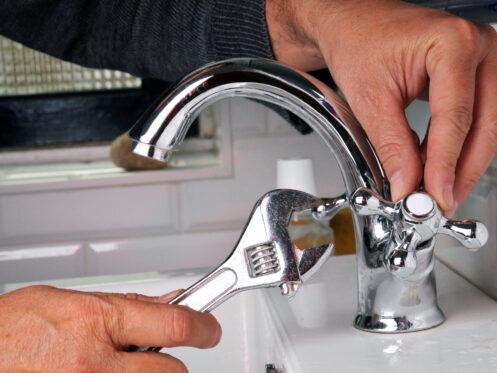Plumbing systems are among the most important infrastructures within modern homes. A plumbing system uses an intricate network of pipes, fixtures, valves, and tanks for everything from supplying water to waste removal. Given the complexities of this network, a plumbing problem may arise when homeowners least expect it. Some homeowners may feel tempted to fix the problem themselves in an attempt to save a little cash. Others may wish to feel the sense of accomplishment that may arise from completing a do-it-yourself (DIY) project. Before you pull out the toolbox, consider these hidden risks of DIY plumbing.
Contamination
Contamination is one of the most dangerous risks of DIY plumbing. For example, improper handling of pipes or fixtures can increase the likelihood of harmful substances like bacteria, mold, chemicals, or dissolved metals entering the drinking water supply. This can create significant health problems for yourself and your family. In addition, untrained individuals are less likely to recognize problems like mold growth or algae.
These bio-hazards can also harm your drinking water and can potentially subject household occupants to illnesses. Similarly, unsafe handling of toilet plumbing problems can result in unintended exposure to raw sewage. Professionals have the training and equipment necessary to fix plumbing issues without contaminating your surroundings.
Electrical Hazards
Plumbing jobs often involve the risk of working near power outlets and water. Without the appropriate precautions and technique, working with moisture near outlets or wiring can lead to electrical shock, electrocution, or even house fires. If you approach plumbing as a DIY project, the consequences can be fatal. In contrast, professionals have the background to work with your plumbing without creating safety hazards in the home. For example, plumbers typically recognize the use of ground-fault circuit interrupters (GFCIs) or residual current devices to protect home occupants from electrical accidents.
Personal Injury
Personal injury is one of the most frequent risks associated with DIY plumbing. Injuries can range from common first-aid accidents to major incidents that require hospitalization. For example, some of the most recurrent injuries that DIYers experience are cuts and bruises from saws, knives, or wires required for use during plumbing jobs. Without the proper safety protocols or experience, amateurs who attempt to cut pipes on their own can experience significant injury.
Novice plumbers can also experience injury from pressurized water, hot water, or steam. Trying to fix a water heater, boiler, or hot water valve without the correct knowledge or gear can lead to serious burns. In contrast, expert plumbers have years of experience and often have additional resources such as advanced precision-cutting tools and burn-resistant gear.
Water Damage
Potential water damage is one of the costliest hazards of a DIY plumbing project. Water damage is insidious because it is often gradual. Many homeowners do not notice water damage until long after the DIY project, and by then the problem may have escalated into major destruction within the property. Water damage usually results from gradual lakes, insufficient connections, or incorrectly installed pipes. Without intervention, water damage can cause flooding, structural damage, or collapse of ceilings or floors.
Excess moisture can also cause the growth of major biological contaminants such as black mold. It is one of the hardest types of damage to repair and can necessitate extensive restoration work. Spare yourself the risk and distress by working with a professional plumbing company instead.
Code Violations
Did you know that professional plumbers must adhere to several codes, regulations, and guidelines administered through local authorities? These codes can vary based on locality and often overlap with insurance company regulations. Hiring a professional plumber ensures that you are working with an expert who is up to date with the latest rules and laws for your location. When you attempt to fix plumbing yourself, you run the risk of accidentally violating relevant codes. This can result in monetary fines, citations during property inspections, and voided insurance claims.
Common DIY Plumbing Mistakes
Becoming a plumber requires years of experience that help these experts avoid mistakes and pitfalls. Without oversight, DIY projects often result in errors that can escalate the cost of repairs. These mistakes typically involve connections, integration of materials, and plumbing tools or supplies.
Over-Tightening Connections
Many DIY handymen attempt to fix leaks by over-tightening connections. Unfortunately, this can result in damaged fittings, cracked valves, and even burst pipes. Even the slightest overtightening can lead to damage due to the strain it can put on the system or the impact it can have on water pressure. Trained plumbers can use accurate diagnostic tools to apply the correct amount of pressure while fixing a connection. These tools can include pressure gauges and the latest state-of-the-art hand tools and wrenches. In this way, plumbers can ensure a watertight seal without inflicting further damage.
Using the Wrong Materials
Another error that can occur during DIY plumbing is choosing the wrong replacement part. Choosing incompatible or cheap materials can result in poor performance as well as excessive wear or tear. Professionals have greater access to original or compatible parts that will help your plumbing function like new again.
Lack of Proper Tools or Gear
Using the wrong tools can worsen plumbing problems. Professional plumbers come equipped with industrial-grade tools that promote accuracy and precision. Since these tools are often unavailable to the general public, it is much more efficient to contact a local plumbing company to complete the job instead.
When to Call a Professional Plumber
Knowing when to call a professional plumber is the best way to save money and eliminate confusion or stress. While a professional can help with most plumbing questions, some of the most common signs that it is time to reach out include low water pressure, leaking pipes, clogged drains, or discolored water.
Low Water Pressure
Water pressure is a measurement of force or pounds per square inch that flows through your pipes. According to the Environmental Protection Agency (EPA), normal residential water pressure falls between 40-60 PSI. Low water pressure can indicate leaks, clogs, or faulty valves within your system. The occurrence of low water pressure can make it challenging to complete daily tasks such as dishwashing or laundry, and undetected water flow problems can escalate into massive plumbing issues later. A plumber can locate the exact source of low water pressure and help fix the issue.
Leaky Pipes
Leaking pipes can cause serious problems ranging from mold growth to structural deterioration. Signs of leaky pipes include water stains on the walls or ceiling, running water sounds even when faucets are not in use, or a sudden spike in your municipal water bill. Instead of allowing damage and utility costs to add up, contact a plumber to fix your pipe cracks or leaks.
Clogged Drains
Clogged drains impede the flow of water and can cause serious backups. Signs of clogs include slow drainage, gurgling sounds, or foul odors near the plumbing. Attempting to fix the clog yourself using plungers or acidic commercial drain cleaners can worsen the problem and severely damage your pipes. Plumbers have equipment like camera inspection tools and snaking devices to precisely locate and safely remove clogs.
Rusty or Discolored Water
Discolored water can indicate anything from water heater damage to pipe corrosion. Not only does this type of water have an unpleasant appearance and metallic taste, but it can also damage major appliances. A plumber can identify the source of rust to improve the quality of your domestic water supply.
Professional plumbing is the safest and most efficient way to keep your property in excellent condition. Level 9 Heating, Cooling, and Plumbing provides plumbing services for homes in Washington, St. Louis, and surrounding areas. Our experts can repair household pipes, fixtures, and drain or sewer lines. We also offer help with outdoor storm drains and vent pipes. Whether you need to install new plumbing or schedule routine maintenance, our trained professionals can help. Contact Level 9 Heating, Cooling, and Plumbing today for all plumbing needs.



